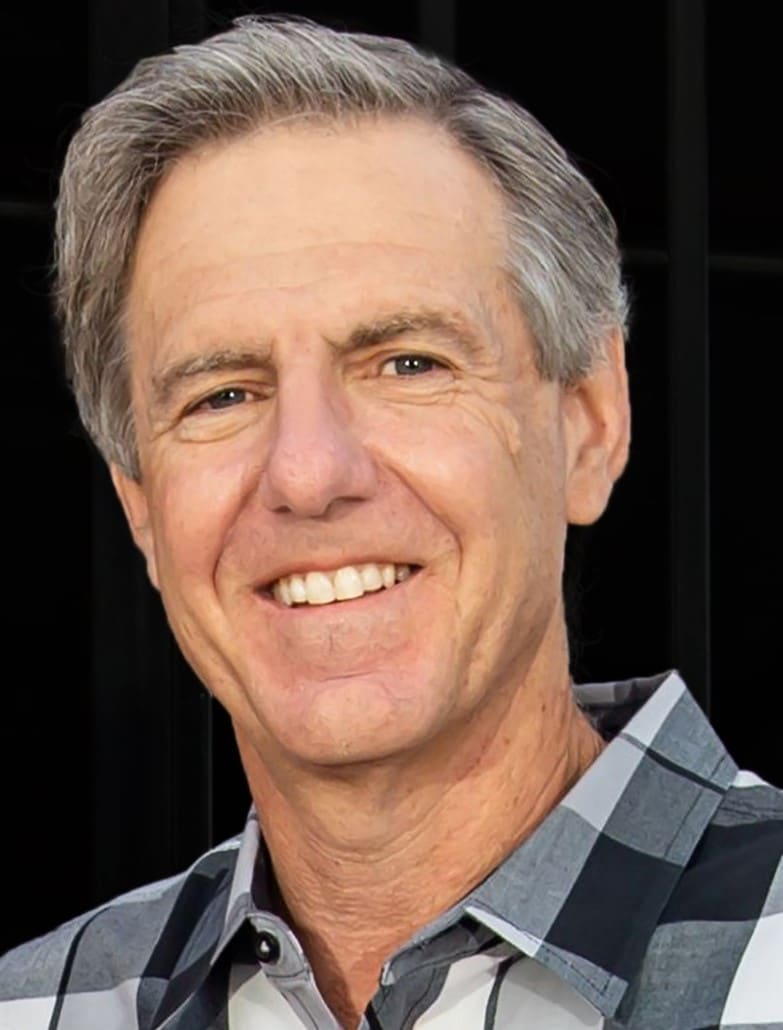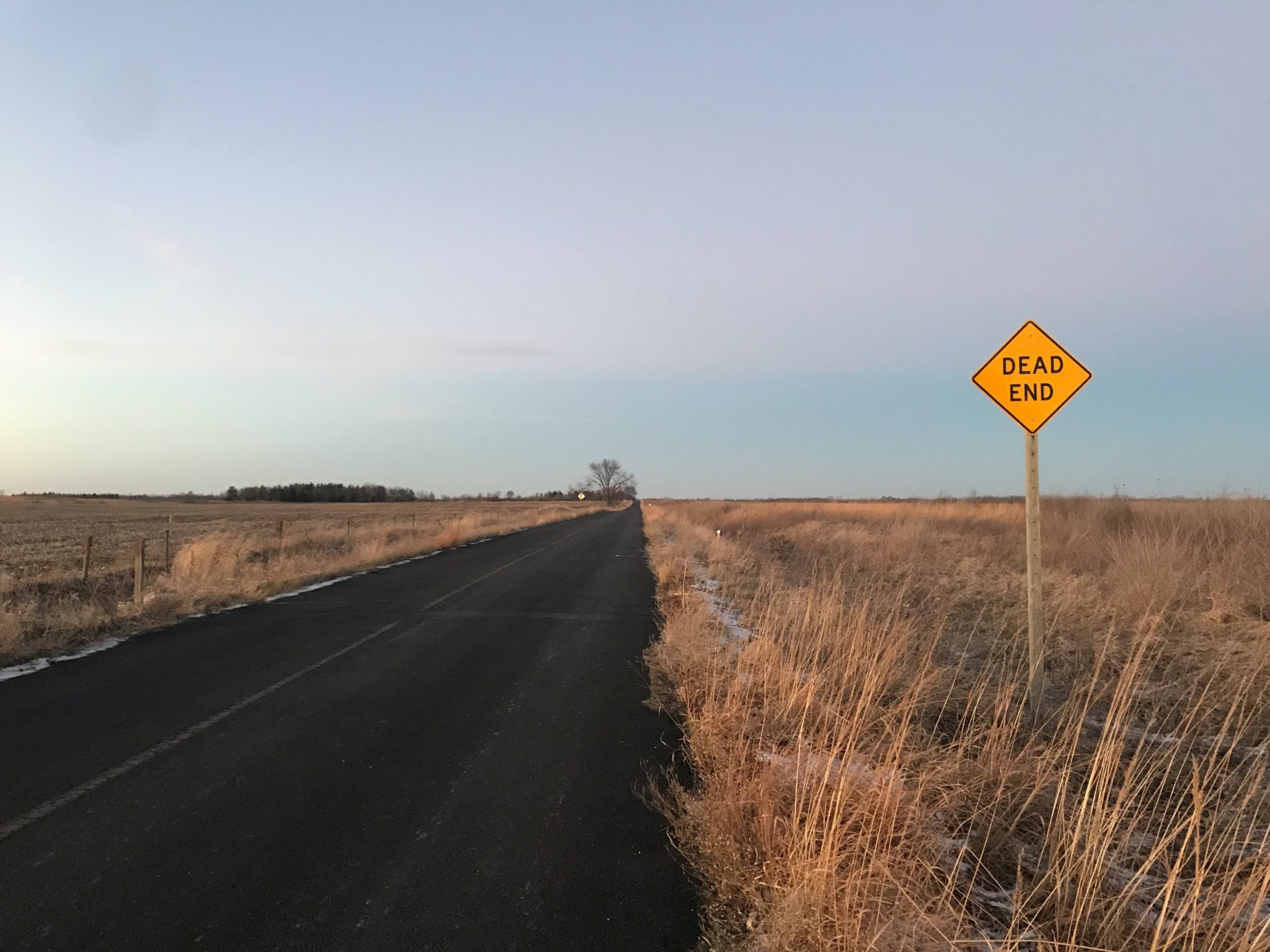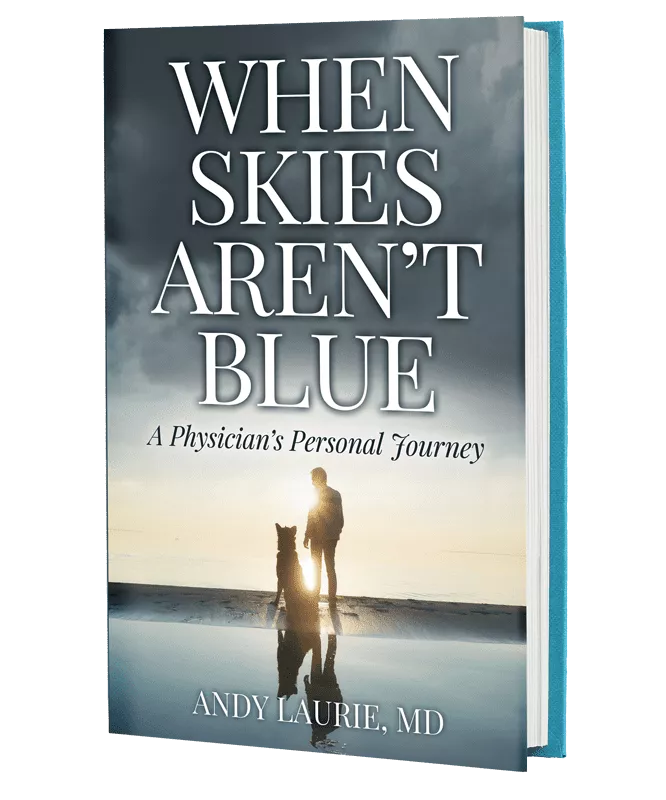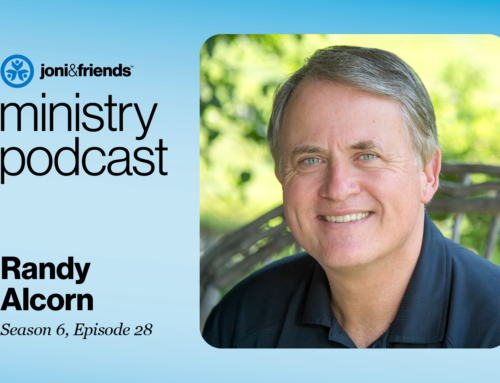When Skies Aren’t Blue: A Doctor’s Journey to Hope Amid Chronic Illness
Subscribe to the Joni and Friends Ministry Podcast
Has unexpected disaster ever struck your life? Have your skies gone dark?
Dr. Andy Laurie knows about sudden and lasting suffering. His book, When Skies Aren’t Blue: A Physician’s Personal Journey, recounts his experience—a journey from health to sickness.
In his 30s, Dr. Laurie had it all—a loving family, a double career as a diagnostic radiologist and a pastor, and energy to thrive in his busy life. And then his skies went dark…
At 38 years old, around Christmas, Andy woke up with flu symptoms. He figured it would pass in a few days. “Well, tomorrow came, I was still sick and throwing up and the next day and the next and the next. And after about a week of this, I was really in bad shape,” he said.

After consulting numerous specialists, Andy got diagnosed with postural orthostatic tachycardia syndrome (POTS), a devastating disease of the autonomic nervous system.
“We [Andy and his wife] went to the Mayo Clinic, and they made it very clear there was no cure for this, which was devastating for us.
I went from healthy, strong, vibrant as somebody that wakes up every morning with what feels like the stomach flu. Sometimes I can’t even get out of bed. Things that used to be so easy are overwhelmingly difficult. And so in a very quick time, I went from blue skies to very dark skies.”
Andy
Now, nearly two decades into life with an incurable auto-immune disease, Dr. Laurie helps others facing unexpected and overwhelming difficulties. But the wisdom and comfort I can now give others didn’t come easily.
While POTS has no cure, and ravages Andy with its symptoms to this day, his doctors told him the condition wouldn’t kill him. So instead of wondering how his wife would raise four children on her own as a widow, he grappled with a new challenge, and new questions.
I can’t be who I was… So who am I now?
Andy faced a second phase of life, which required new expectations, new definitions, and new answers. His kids would have a dad, but not the former energetic dad who could run around the soccer field—instead, a chronically sick dad, a severely limited dad.
His wife would still have a husband, but no longer the high-energy man pursuing life’s high-ticket items. He wondered what his wife would think of him, and struggled with his own identity as he lost the ability to do the things that made him feel successful, desirable, like a man…like himself.
In order to live into the life ahead of him, Dr. Laurie had to let go of his old self-image and develop a new sense of identity.
“The severe limitations sent me into a really dark place. Because in many ways, we as guys value ourselves based on what we do, what we achieve, what we accomplish. This illness robbed me of my ability to be able to do any of those things. And I began to not feel very good about myself. I didn’t have much respect for myself. Although my wife did not feel this way, I just would think of how maybe she wouldn’t think much of me as a man anymore.
And I really pulled away and went into a very, not a good place for me emotionally. I was not a very good husband. It was a real tough time. Finally, I came to that point saying, ‘This has got to stop. I know better than this. I’m a pastor. I have taught on this. I have taught on our self-worth is not what we do and what we achieve and what we accomplish. It’s who we are in God.’
First and foremost, God made us and created us in his image. And that gives us our value, but we can’t be defining ourselves by the magnitude of our achievements.”
Andy
Redefining Victory
Strengthened by God, his family, and his community, Dr. Andy learned to navigate his “second phase of life” – life with POTS, and live into his identity in Christ. As he put it:
“I had to go through this process of redefining what a victory is…I had to get to this point where I said, ‘Okay, Andy, you can’t do the things you used to do, but you cannot let the things that you can’t do stop you from doing the things you can do.’”
Andy
While he couldn’t keep up with his kids anymore, he could muster the energy to watch them play sports and encourage them. While he couldn’t keep up shifts at emergency rooms all night, he could review radiology reports on his computer at home. While he couldn’t run a church anymore, he could minister to a few people on a Sunday morning.
Still, month after month, year after year, Andy prayed that God would heal him—take away the suffering: nausea, exhaustion, and weakness. As the disease remained, only the ultimate sure foundation could keep Andy from falling into despair.
A Place to Stand…No Matter What
For Andy, the ultimate foundation for hope and for life came down to his faith, not blind faith, but clear-eyed, examined, reality-based faith.

“When life hits us and hits at heart—whether we’re talking about an ongoing, awful illness…a disability, or some financial calamity, or a divorce, or a loss of loved one, whatever it is…
When we reach that point when we’re absolutely overwhelmed, in those moments, it’s not going to be good enough to hope God is real, to wish he’s true, and to kind of have this blind faith that I just feel he’s there.
We will end up becoming despondent and discouraged very quickly if we don’t have objective truth.”
Andy
Dr. Andy points to the story of John the Baptist. Imprisoned, he knew his life was going to end—that his execution was coming. And he went through a phase of doubt, wondering if Jesus was really the Messiah.
“When John, who was in prison, heard about the deeds of the Messiah, he sent his disciples to ask him, ‘Are you the one who is to come, or should we expect someone else?’
Jesus replied, ‘Go back and report to John what you hear and see: The blind receive sight, the lame walk, those who have leprosy are cleansed, the deaf hear, the dead are raised, and the good news is proclaimed to the poor. Blessed is anyone who does not stumble on account of me.’”
Matthew 11:2-6
Jesus’s response says a lot, both in what he omits and what he includes. He doesn’t reprimand John for his doubt. Instead he tells John’s followers to remind John about the miracles—miracles Jesus performed that were prophesied in the Old Testament.
Jesus knew that John had studied the Scriptures, and that the tie between the prophecies and Jesus’s ministry would give John what he needed: confidence that Jesus was indeed the Son of God, and the Messiah.
We, like John the Baptist, need to know we stand on a sure foundation when it comes to our trust in Jesus.
“No matter what we’re going through, what we’re struggling with, we come back to that objective truth that we can prove God is real, prove God is true. We can prove the Bible is real. And because of that, we know God some way, one way or the other, he’s going to get us through. If we don’t know God is real and true, everything falls apart, and we won’t be able to find those blue skies again.”
Andy
What if I feel bitter about my suffering?
For Dr. Laurie, like all of us at some time or another, the suffering or struggles of life won’t go away: a loved one is gone; the diagnosis is chronic, or terminal; the relationship has ended for good. He offers a warning against bitterness and advice on how to avoid it:

“It’s easy for those that suffer chronically to slip into bitterness…and I think it is failed expectations that lead people down that pathway to bitterness. We expect somehow life to be good. We expect our relationships to be good. We expect to be healthy. We expect there not to be financial calamity, whatever it is.
And when inevitably those things fall apart, it leads us down this pathway of darkness into bitterness. And so it is so crucial that we accurately see the world around us, through the eyes of God. How God has clearly portrayed to us scripturally the nature of this world we live in.”
Andy
Dr. Andy points to Genesis: from the moment Eden is lost, God makes it clear that we will have problems in this life. In the New Testament, the book of James reinforces this truth:
“Consider it pure joy, my brothers and sisters, whenever you face trials of many kinds, because you know that the testing of your faith produces perseverance. Let perseverance finish its work so that you may be mature and complete, not lacking anything.”
James 1:2-4
Andy points out that this passage doesn’t tell us to enjoy suffering, rather to consider our suffering joy. Nobody likes to be sick or in pain, but we can still find joy by trusting God to bring something powerful and positive out of our trials.
And the Bible doesn’t say, “if you face trials.” It’s “when,” not “if.” The Bible makes it clear that the trials will come in this broken world.

Polka-Dots
When the book of James talks about the sufferings we can expect in life, Dr. Andy points out that the etymology of the word used for “trials of many kinds” translates, surprisingly to “polka-dots.”
Andy says, “So God’s saying here our life is going to be polka-dotted with these struggles and problems. That’s how he wants us to see life.”
Imagine your life as a canvas strewn with polka-dots, some red and some green. The red dots represent suffering; the green represent joy. Both colors occupy the space, sometimes overlapping.
So, says Andy, goes life: The suffering and joy both exist. They are both real.
As with an abstract painting, the viewer’s experience involved choice. We get to choose what to dwell on, and what we make of the contours and colors before us. This is where Philippians 4 speaks to us:
“Finally, brothers and sisters, whatever is true, whatever is noble, whatever is right, whatever is pure, whatever is lovely, whatever is admirable—if anything is excellent or praiseworthy—think about such things. Whatever you have learned or received or heard from me, or seen in me—put it into practice. And the God of peace will be with you.”
Philippians 4: 8-9
Andy has learned to choose to dwell on the green dots. The red dots still exist: he’s sick, suffering, miserable at times. But God has done amazing things in his life.

“If all I do is get myopic and focus on the red dots, I would miss all the wonderful green dots…And so, having accurate expectations is so important because when we do that, we then open our eyes a little wider. We see God working in our lives and it is so powerful and so amazing.”
Andy
Where can I place my hope?
Even for Dr. Laurie who has trained his eye to see green polka-dots, and find patches of blue sky, in the midst of chronic illness, a quest for answers and relief from illness can still cause emotional ups and downs.
“You know, I think for those who suffer with chronic illness…we’re looking for answers. And we’re looking for hope when we go to the doctor and they’re saying, Hey, there’s this new medicine out there. There’s this new procedure out there. There’s this new surgery…This is the thing. This is the one. This is what’s going to finally give us our life back. And we pray and we get so excited.
But 99% of the time it doesn’t work, or it makes things worse. And we’re just devastated. It was this rollercoaster… And my wife and I finally said, ‘We’ve had enough of this.’ We put our hope in the one thing only that will never let us down. And that’s God, who we know is real and we know is true.”
Andy
To anyone suffering right now, and wondering if God is real, Dr. Andy Laurie confirms: “God is real. He is—it’s true! It’s provable.”
Trust in God and hope in Christ continues to sustain Dr. Andy to this day, just as he wants to sustain you.
Read When Skies Aren’t Blue
Relying on decades of medical practice and ministry, Dr. Andy Laurie has written prescriptions for you to find hope, joy, and even victory when the struggles of life have darkened your blue skies.









